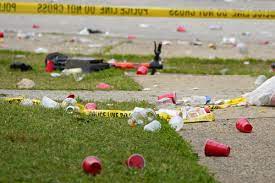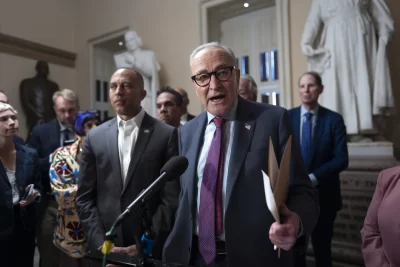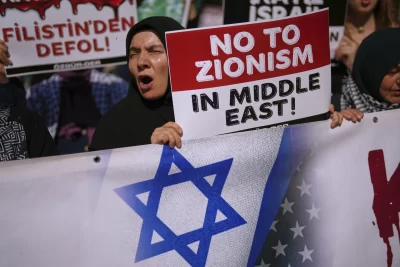
Until she graduated from high school in June, Aaliyah Gonzalez had a strict 11 p.m. curfew. But her parents decided to loosen the rules after proudly watching her walk across the graduation stage to collect her diploma.
With college on the horizon, she took advantage of her newfound freedom and stayed out late to celebrate the start of summer with friends. That’s how Aaliyah ended up at Baltimore’s Brooklyn Day celebration, now best known as the site of a mass shooting that turned an annual block party into a scene of terror and bloodshed.
Aaliyah, 18, was among two people killed by gunfire July 2. Another 28 victims were injured, most of them teens and young adults.
The Baltimore Police Department continues to face significant scrutiny over its lackluster response in the hours leading up to the shooting. A report released last month found that officers and supervisors repeatedly ignored warnings about the crowd swelling to nearly 1,000 people, including some who appeared armed and disorderly, in the courtyard of south Baltimore’s Brooklyn Homes public housing complex.
“Aaliyah would have never been out that late, but here’s the thing — she earned it. She did everything her father and I ever asked,” her mother, Krystal Gonzalez, told members of Baltimore City Council during Wednesday’s oversight hearing. “I had no idea about this block party, but I will tell you what a mother experienced that night.”
Seeing her daughter’s body sprawled beneath a white sheet, Gonzalez said, she was unable to process what was happening. She worried Aaliyah was uncomfortable lying on the concrete, that she wouldn’t be able to breathe inside the body bag.
“That’s what grief does,” she told the council members, her voice often breaking during several minutes of emotional testimony.
Gonzalez said her pain only deepened when she found out about the police department’s failures.
“Knowing that there were calls — endless calls for help — and no one showed up,” she said. “People did not care enough to check on them, to check on her. That’s not right.”
Council members called the hearing Wednesday to continue an ongoing public discussion about what went wrong that night — and how to address a devastating spike in youth violence.
Some city leaders have repeatedly questioned whether the police response would have been different if the party took place in a more affluent, majority-white neighborhood. They’ve pointed to a long history of poverty and neglect in Brooklyn, a majority-Black community in the southwest corner of Baltimore. And they promised to pour more resources into the area, saying the shooting served as a wakeup call.
“Officer indifference may have compromised the awareness, planning and response to Brooklyn Day prior to the large crowds arriving,” department leaders wrote in their after action report about the shooting. “Members of the community can view such indifference (whether real or perceived) as a form of bias.”
During Wednesday’s hearing, Acting Baltimore Police Commissioner Richard Worley again acknowledged the lack of care displayed by some officers. The department has already reassigned some command-level supervisors and launched disciplinary actions in response to the shooting, which marks the latest example of an embattled law enforcement agency failing to build community trust.
Five teenagers have been arrested, including four who are charged with shooting into the crowd. The latest arrest was announced Wednesday morning and officials say the investigation is ongoing with more arrests likely.
While she sought to make city leaders understand her pain, Gonzalez said no amount of understanding could make her family whole again. She said she recently went back to work while her other children are struggling to navigate their own futures after losing Aaliyah, a talented artist and honor roll student with big dreams.
“Sometimes I have to hug myself to imagine her hugging me back,” Gonzalez said. “This is my life. … I’m forced to adjust.”






